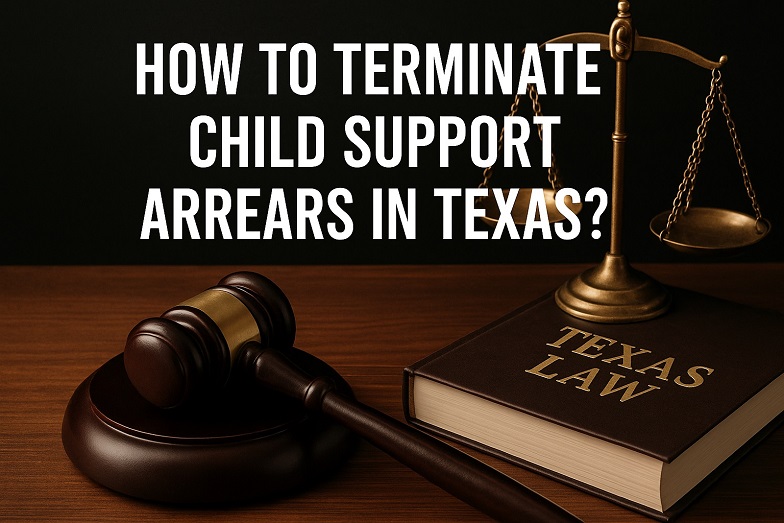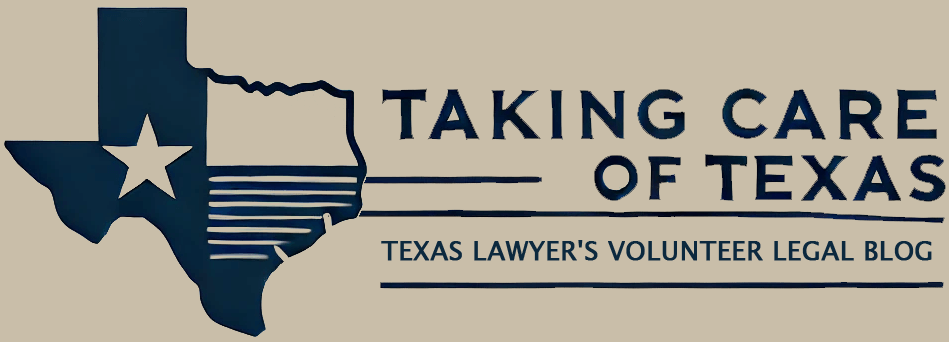Falling behind on child support payments in Texas can lead to serious financial and legal consequences. Whether the arrears have built up due to job loss, unexpected expenses, or other challenges, many parents wonder if there’s a way to reduce or eliminate what they owe.
In Texas, child support arrears are considered a legal obligation that cannot simply be erased or discharged, even through bankruptcy. The state treats unpaid support as a priority debt, and courts enforce it aggressively through measures like wage garnishment, license suspension, tax refund interception, and property liens.
Although you can’t wipe away arrears completely, there are lawful steps that can help reduce the burden. Options such as restructuring payments, modifying court orders, or seeking termination of wage withholding can help you regain control of your finances while still meeting your legal obligations.
Child Support Arrears Are Non-Dischargeable—Even in Bankruptcy
 One of the most important things to understand about child support arrears in Texas is that they cannot be eliminated through bankruptcy. Regardless of whether you file under Chapter 7 or Chapter 13, back child support remains fully enforceable and must be paid in full. This applies not only to court-ordered support but also to interest that may have accrued on missed payments.
One of the most important things to understand about child support arrears in Texas is that they cannot be eliminated through bankruptcy. Regardless of whether you file under Chapter 7 or Chapter 13, back child support remains fully enforceable and must be paid in full. This applies not only to court-ordered support but also to interest that may have accrued on missed payments.
The reason for this strict policy is that child support is seen as a moral and legal obligation to the child, not just a financial debt. As such, both state and federal laws treat it differently than credit card debt, medical bills, or personal loans. Even if a bankruptcy court grants you relief from most of your debts, your child support obligations remain intact.
Failing to address arrears can lead to escalating penalties. The state can intercept tax refunds, suspend your driver’s license or professional licenses, garnish wages, place liens on property, and in severe cases, pursue contempt of court charges. The longer arrears go unpaid, the more difficult and costly the consequences become.
Understanding this distinction is crucial when considering your financial options. While bankruptcy may help with other debts, you’ll need a separate plan to deal with unpaid child support.
Use Chapter 13 to Reorganize and Pay Down Arrears
Although child support arrears can’t be eliminated in bankruptcy, Chapter 13 can offer a practical way to catch up on payments without the constant threat of enforcement actions. This type of bankruptcy allows you to reorganize your debts including past-due child support into a structured repayment plan that spans three to five years.
Under Chapter 13, your arrears are treated as a priority debt, which means they must be paid in full over the life of the plan. However, this doesn’t mean paying them all at once. Instead, your past-due support is broken into monthly installments based on your income and expenses. This can significantly reduce the pressure of lump-sum collection efforts or aggressive garnishments.
One major benefit is the automatic stay that goes into effect when you file. This temporarily halts most collection efforts, giving you breathing room while your plan is being reviewed by the court. However, current child support payments must still be made during the plan filing doesn’t excuse you from keeping up with ongoing obligations.
Chapter 13 isn’t the right choice for everyone, but it can be a powerful tool for parents who have income and want to avoid enforcement actions while getting caught up on overdue support. It’s also one of the few legal mechanisms that allows you to resolve child support debt in a controlled and court-supervised environment.
Petition to Terminate or Modify Withholding Orders
In Texas, wage withholding is one of the most common methods used to enforce child support payments. When arrears accumulate, the court often issues a withholding order that automatically deducts child support from your paycheck. However, if your circumstances have changed such as the child aging out of support or a court-ordered modification you may be eligible to terminate or adjust the withholding order.
To start this process, you must file a Petition to Terminate Withholding for Child Support with the same court that issued the original child support order. This petition asks the court to stop deducting support from your wages if the underlying obligation has ended or changed significantly. For example, if the child has turned 18 and graduated high school, or if a new support agreement has been approved, the court may agree to terminate the order.
If both parents agree that withholding should end, they can submit a signed Waiver of Service along with an Order to Employer to Terminate Withholding. This can simplify the process and may allow for quicker resolution without a contested hearing. However, the court still must approve the order before it becomes effective.
It’s important to note that this process only applies to future payments. Terminating wage withholding does not erase any arrears that have already accrued. Those remain collectible and enforceable until fully paid. Still, this step can help reduce financial pressure once your support obligation has changed or ended.
Modify the Original Child Support Order (If Circumstances Changed)
If your financial or life circumstances have significantly changed, you may be eligible to modify your existing child support order in Texas. While a modification won’t eliminate past-due arrears, it can help reduce your current and future payment obligations making it easier to avoid falling further behind.
Common reasons for modifying a support order include:
-
Loss of employment or significant income reduction
-
A serious illness or disability that limits earning capacity
-
Changes in custody or visitation arrangements
-
The paying parent has new dependents to support
To request a change, you must file a Petition to Modify the Parent-Child Relationship in the court that issued your current order. The court will evaluate whether there has been a “material and substantial change” in circumstances since the last order was issued. If the judge agrees, they may lower your monthly payment to reflect your current ability to pay.
In Texas, you can also request a review of your support order through the Office of the Attorney General (OAG) Child Support Division. This may be a helpful option if you and the other parent agree to the changes or if you want to avoid a drawn-out court battle.
While modification can’t undo existing arrears, it can stop the bleeding by adjusting your obligations moving forward. If you’re struggling to keep up, taking proactive steps to modify your support order can prevent further financial strain and reduce the risk of enforcement actions.
Use Enforcement Tools Strategically or Seek Forgiveness Programs
Texas takes child support enforcement seriously, but there are legal avenues that may offer relief for parents who are behind especially when enforcement becomes overly burdensome or prevents you from earning a living. While outright forgiveness of child support arrears is rare, some tools can reduce penalties, prevent asset seizures, or create manageable payment arrangements.
In certain situations, the Texas Office of the Attorney General (OAG) may work with parents to establish payment plans for arrears, especially when those parents demonstrate a willingness to comply. These plans may prevent more aggressive enforcement actions like property liens, tax refund interceptions, or license suspensions.
Some parents may also request a partial lien release an arrangement where the state agrees to remove a lien on a vehicle, home, or bank account in exchange for a lump-sum payment or structured repayment commitment. While this doesn’t erase the arrears, it can help restore access to essential assets and make financial recovery possible.
In very limited cases, courts may consider equitable relief if the arrears were the result of errors, duplicate orders, or misapplied payments. However, this typically requires extensive documentation and legal support.
Although there’s no formal forgiveness program that wipes out arrears in Texas, demonstrating good faith, maintaining communication with the OAG, and showing consistent effort to pay can result in more flexible enforcement terms. If you’re unsure which strategy fits your situation, legal advice can help clarify the best path forward.
FAQs About Handling Child Support Arrears in Texas
Can bankruptcy eliminate unpaid child support in Texas?
No. Child support arrears are considered a priority debt and cannot be wiped out by filing bankruptcy—whether under Chapter 7 or Chapter 13. However, Chapter 13 can help you organize and repay arrears over time as part of a court-supervised plan.
Can Chapter 13 help reduce my child support debt?
Chapter 13 won’t reduce or eliminate the amount you owe, but it allows you to repay child support arrears in manageable monthly payments over a 3–5-year period. This can offer financial breathing room and stop aggressive collection tactics while you catch up.
Can I stop wage withholding if arrears still exist?
Wage withholding can sometimes be terminated if the original support obligation has ended and both parties agree, but the arrears themselves remain collectible. You must file a petition with the court, and approval is required before the withholding stops.
What are valid reasons to modify child support in Texas?
You can request a modification if there’s been a substantial change in circumstances. Common reasons include losing a job, experiencing a medical issue, or taking on more parenting time. Even if granted, a modification only affects future payments—it won’t erase past due amounts.
Is there a way to get child support arrears forgiven in Texas?
Complete forgiveness is rare and typically requires extraordinary circumstances, such as a clerical error or an agreement with the other parent. However, you may qualify for a payment plan or partial lien release to ease the financial burden and avoid enforcement.
Consult a Texas Family Law Attorney
Child support arrears in Texas are legally enforceable and often come with serious financial and legal consequences. While you can’t erase this debt, you do have options to manage it whether through payment plans, bankruptcy reorganization, or court-approved modifications. The key is acting early and working within the legal system, rather than ignoring the problem and risking enforcement actions.
If you’re unsure which steps to take or whether you’re eligible for certain forms of relief, speaking with an experienced Texas family law attorney can make a big difference. A lawyer can help you navigate the legal process, prepare the right forms, represent you in court, and negotiate with the other parent or state agency. The sooner you act, the better your chances of resolving arrears and protecting your financial stability.
